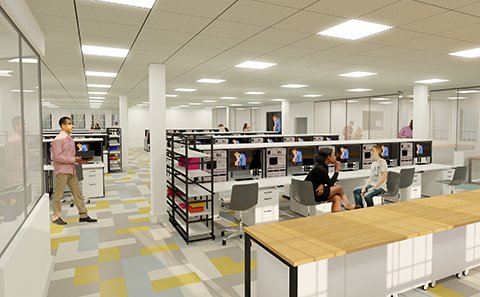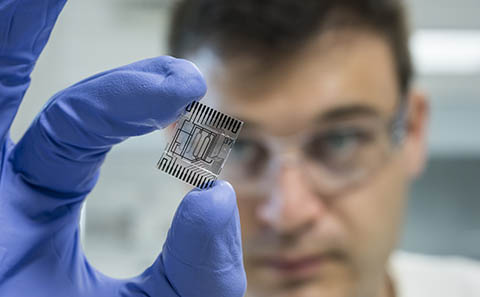Software Engineering students from the University of Southampton have finished second in the International Automated Negotiating Agents Competition with a striking entry based on their degree coursework.
Meng Wan and Hui Cui designed the autonomous negotiation agent during the Intelligent Agents module of their MSc Software Engineering degree. They subsequently upgraded the creation, known as meng wan or Agent 36, before entering at Julyâs International Joint Conference on Artificial Intelligence (IJCAI 2018) in Stockholm, Sweden.
The agent was one of 21 competitors representing 10 universities from eight countries in the ninth annual tournament, a prominent stage for evaluating practical negotiation strategies in multi-issue domains.
Associate Professor Dr Enrico Gerding, a lecturer for the Intelligent Agents module, said: âIâm very pleased about the success of our MSc students at one of the most prestigious artificial intelligence conferences. It shows the quality of the students and our research-led teaching in artificial intelligence. In particular, the Agents, Interaction and Complexity (AIC) research group is one of the world leading groups in the area of intelligent agents, and this is reflected in our teaching.â?
Meng and Hui were awarded a â¬650 travel scholarship for reaching the contestâs final and secured a further â¬200 cash prize for their second place ranking in the Individual Utility group. Their Repeated Multilateral Negotiation League category was won by AgreeableAgent2018 by Sahar Mirzayi from the University of Tehran, Iran.
Southamptonâs Intelligent Agents teaching offers students a broad introduction to the new and rapidly expanding field of agent-based computing. Particular emphasis is placed on automated negotiation, cooperation and on-line auctions, and students are required to program a trading agent in Java which competes in a class tournament within a simulated trading environment.
The module is taught by experts from the AIC Group, which is led by Professor Tim Norman. The research group investigates the science and engineering of complex socioâ?technical, socioâ?economic and socioâ?ecological systems that underpin the most pressing challenges currently facing society.

